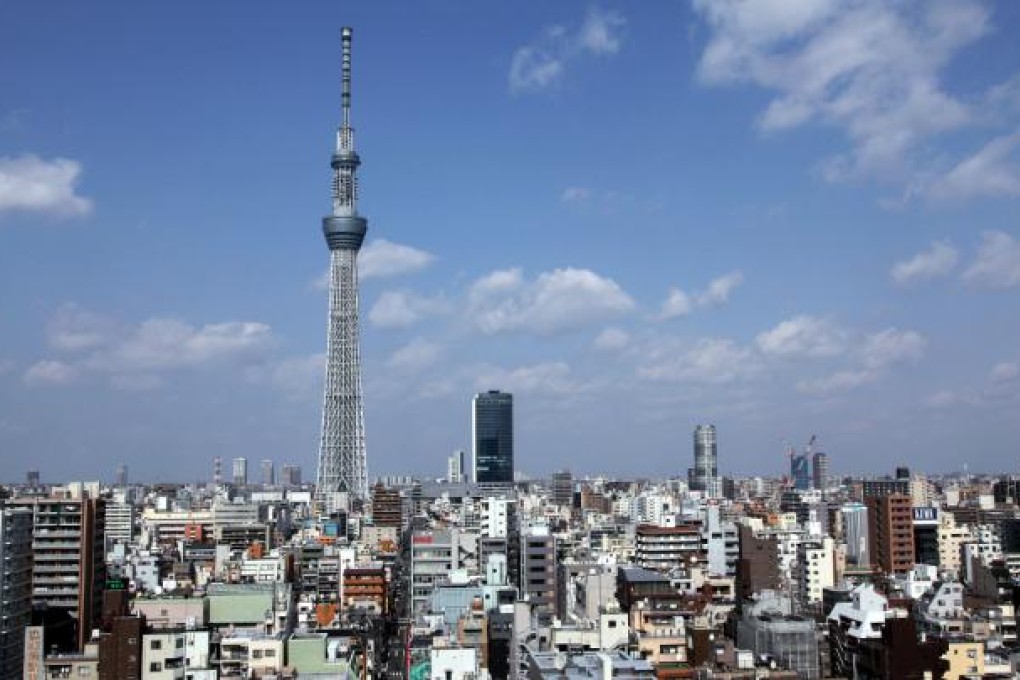Signs of hope in the future

There has been a good degree of hand-wringing at the state of Japan's economy among economists, opposition political parties and in the media, but there is equally a sense that changes in society here will open up greater economic opportunities for Japanese firms.
Despite problems that range from a vast national debt, an ageing population and diplomatic disputes with its neighbours that impact Japanese firms' activities, the optimists say that there are already signs of a rejuvenated Japan.
"It's happening right now," says Jesper Koll, head of research for JP Morgan in Japan. "Domestically, the most exciting thing for me is that we are seeing the end of wage deflation as the baby boomers are now retired," he says.
"These are the people who are in the demographic sweet spot of being in their late 30s or early 40s, and where we will see wage growth accelerate very rapidly. Seeing this old guard leaving and the new guard arriving makes this a very exciting opportunity for Japan."
One of the key barometers that Koll - an optimist on the state of the Japanese economy - points to is the market for homes, a function of increasing pay packets. For seven consecutive months, he points out, there has been positive growth in mortgage lending.
"And there are those who might say that is simply a result of the reconstruction in the northeast after last year's earthquake and tsunami," he says. "But that would be wrong. The increase in mortgage applications is in Tokyo, Osaka, Nagoya, Fukuoka, the urban centres where people want to live, they want to work and they want to have their homes."
Another critical element in Japan's favour, Koll believes, is its vast reserves of patents and intellectual property rights. Research spending in Japan accounts for 3.5 per cent of gross domestic product, making it the highest in any of the advanced global economies.
Martin Schulz, senior economist with the Fujitsu Research Institute, is less bullish on the state of the economy - perhaps understandably, as the Bank of Japan's quarterly "tankan" survey of business sentiment, announced late last month, shows that business conditions among large manufacturers deteriorated for the first time in three quarters. But there are reasons to be optimistic, he agrees.
"The engine of growth in Japan is the service sector as manufacturers are still experiencing problems," he says.
"They have undergone restructuring over the past few decades so their valuations are down to earth and they are very lean, all of which are positive.
"Even though they have a lot of potential now, they have until now largely been focused on domestic consumers and it is proving tricky for some of them to go into overseas markets."
Many outfits in Japan's service sector and retailers have blazed a new path overseas - Uniqlo, Rakuten, business service companies and number of internet firms - and manufacturers can learn from their experiences, Schulz says.
The presence of those firms overseas has had a knock-on effect in Japan, with investors in Hong Kong, Singapore and Shanghai more willing to sink funds into the domestic Japanese market.
Another area seeing positive movement is international investment in commercial property, with the market here entering a positive new cycle, banks looking to lend again, sellers making optimistic noises and buyers preparing new investment packages.
"There are a lot of positive developments that we can see around us, although I would say there is still some way to go for the Japanese economy," Schulz says. "It's not time to open the Champagne." But it should probably be chilling by now.